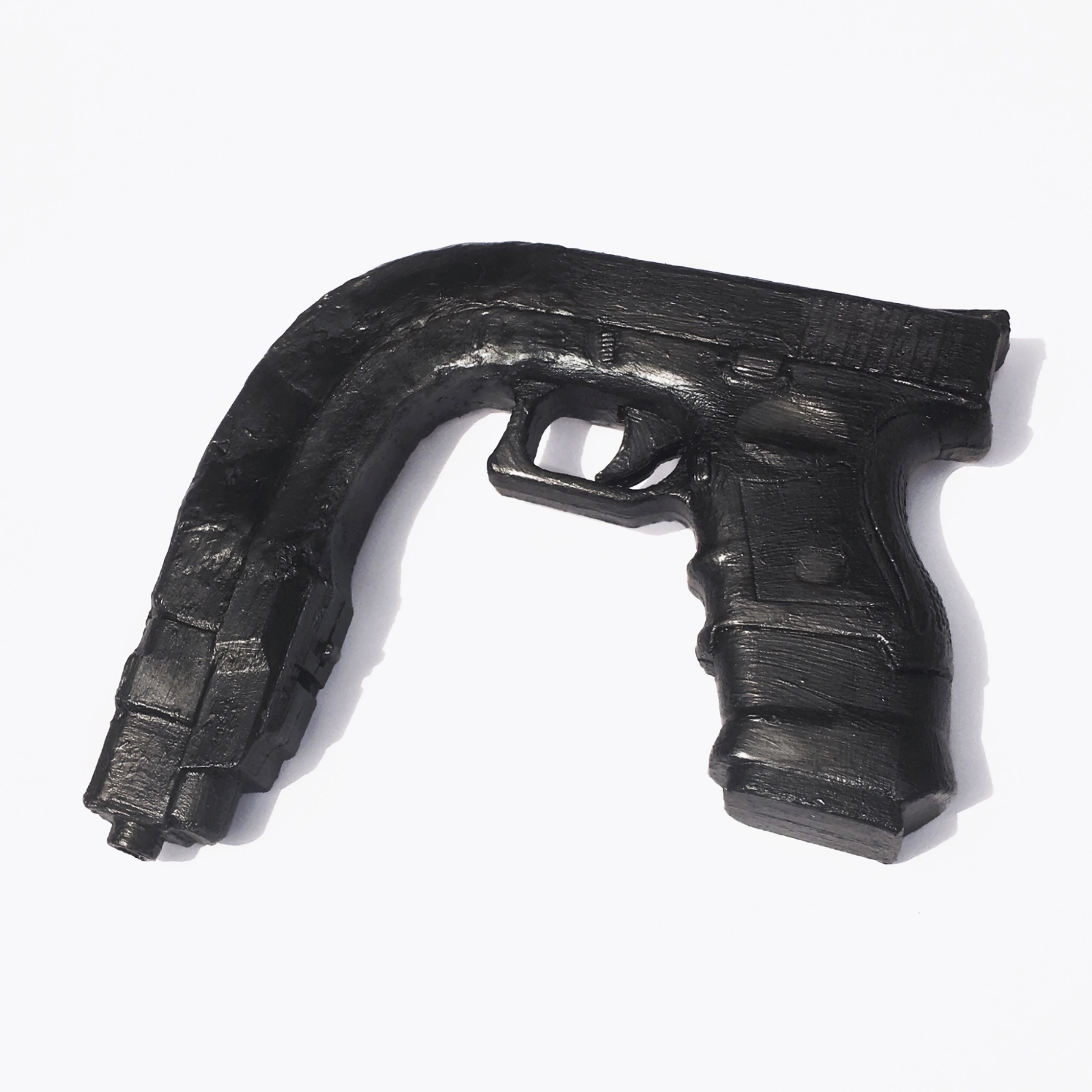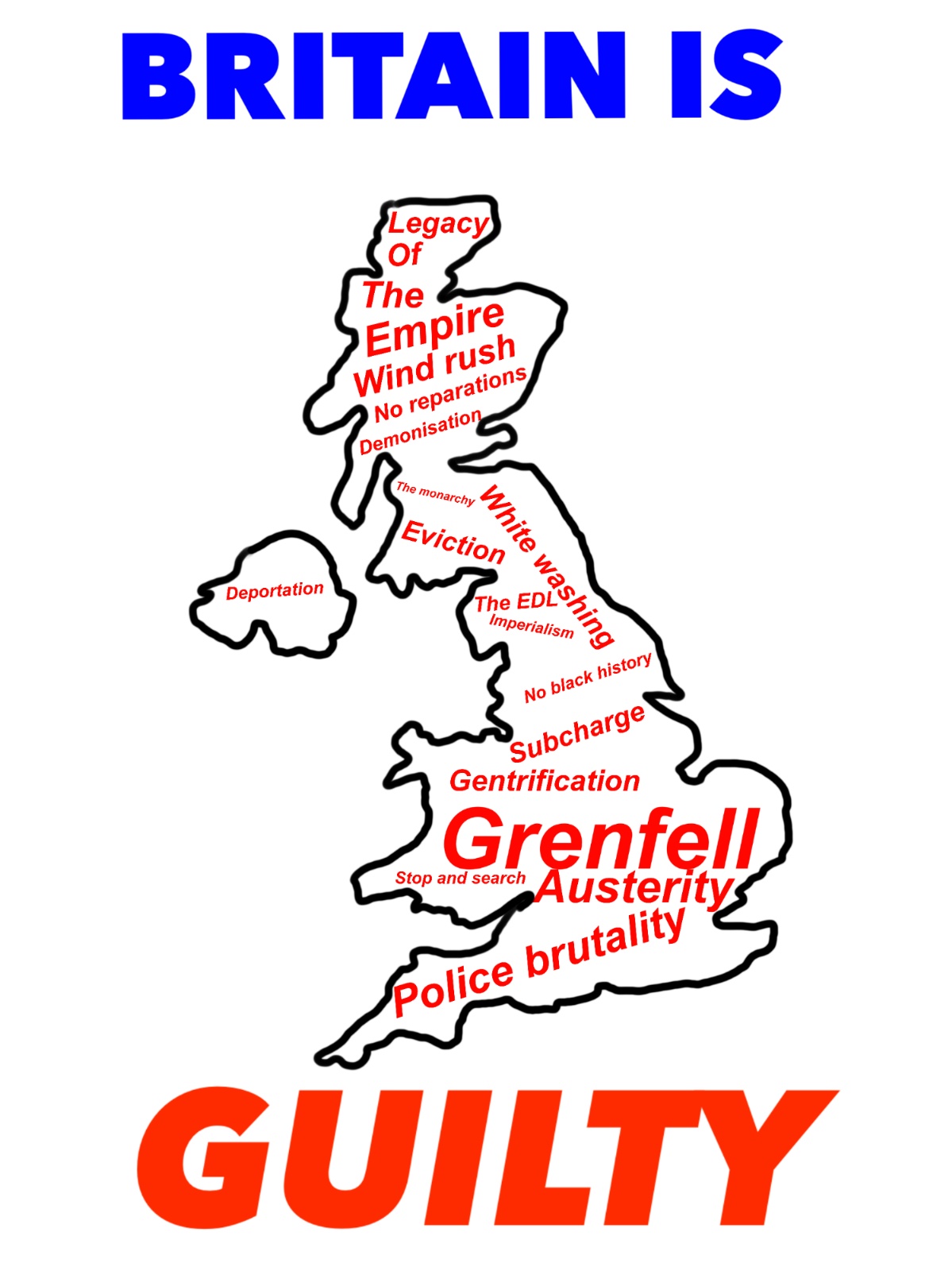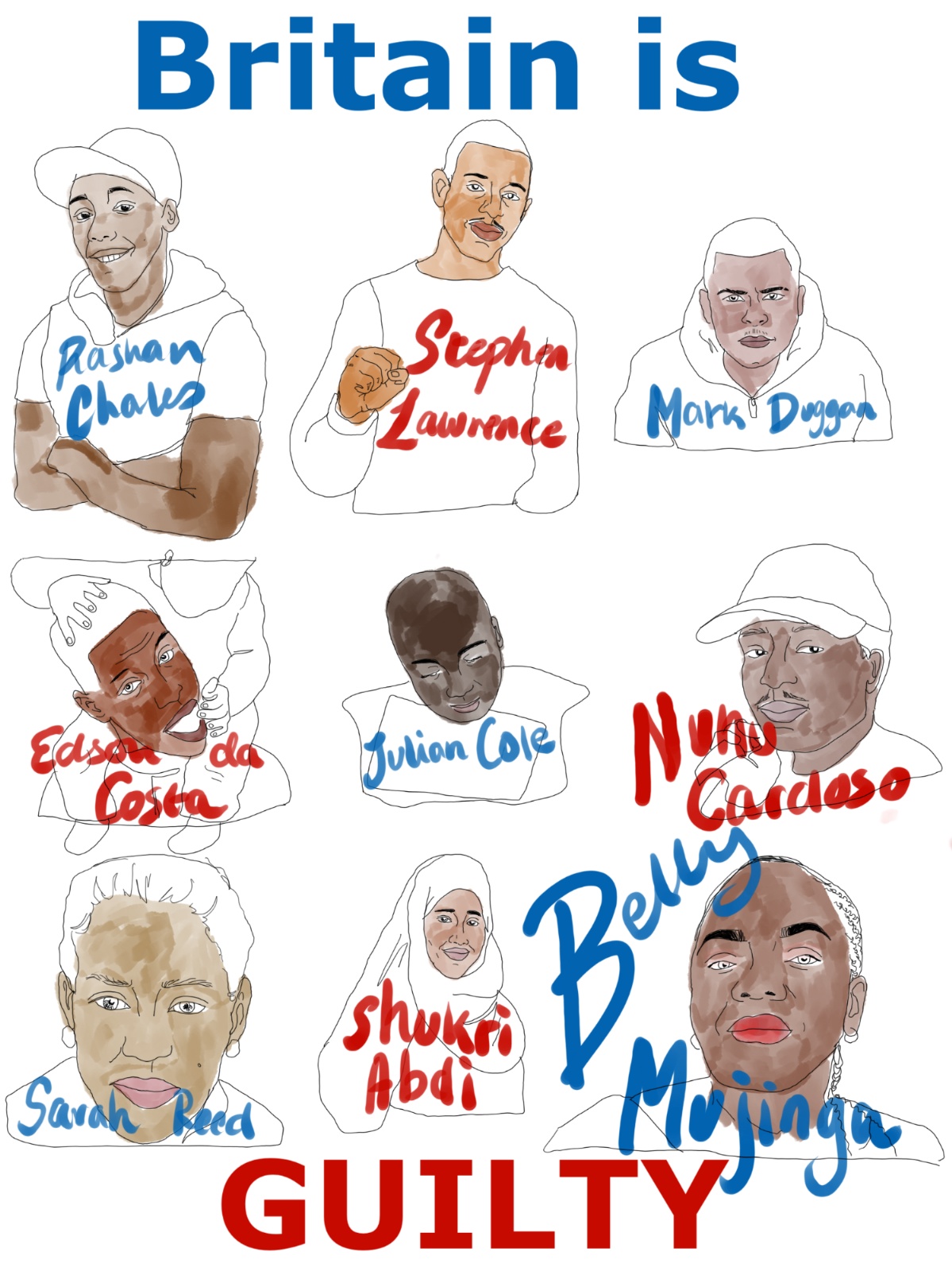BRIT NOW - #BLACKLIVESMATTER
This edition of BRIT Now is dedicated to Black Lives Matter. All work is created by our students and alumni during lockdown. Please visit the Pastoral & Library Instagram for support and resources.
#BLACKLIVESMATTER
Use Your Creative Voice to be Heard - Joivan Wade (Actor and BRIT School Alumni)
Motherland - Pearl Adams (Year 11)
"My work around the BLM protests highlighting the brutality of the corrupt police forces in this moment of time".
I CAN'T BREATH
#BeTheChange - Taylor and Kai Keenan-Felix (Year 11)
This is our video about Black Lives Matter which has been getting a great response, so we want to get people involved in the #BeTheChange as we believe if lots of children/teenagers get involved it could be powerful.
Incompetence - Tatum Parden (Year 13)

"I am no longer accepting the things I cannot change. I am changing the things I cannot accept"
Loyle Carner - BRIT School Alumni
https://www.instagram.com/loylecarner/
I Stand - Amelie Bardsley (Year 13)
"I understand that I will never understand. However, I stand."
BRIT Pastoral Instagram
https://www.instagram.com/britpastoralcare/
Black is a Pro - Carlos Byles (Year 13)
The Fight Against Racism - Britain is guilty - Sadie Moir (Year 13)
"Education must be the root of real change. In standing with America, crucially, we must contextualise the legacy of Colonialism and Empire in Britain. It is essential for us to dissect the past in order to analyse the present. In the aftermath of Colston’s downfall and the backlash that act of resistance received, we must ask ourselves why he was left to stand for so long?
 Systemic racism is in place on every level of Britain’s infrastructure. It is endemic and a system that continuously benefits those it was built to serve. The intersections of racial injustice in the UK include class, feminism, economics, the Arts, education, gender identity, and sexuality. From housing - 40% of families living below the poverty line are Black while Black British citizens make up only 4% of the population. Only 38% of black Britons are homeowners compared to 68% of white Britons.
Systemic racism is in place on every level of Britain’s infrastructure. It is endemic and a system that continuously benefits those it was built to serve. The intersections of racial injustice in the UK include class, feminism, economics, the Arts, education, gender identity, and sexuality. From housing - 40% of families living below the poverty line are Black while Black British citizens make up only 4% of the population. Only 38% of black Britons are homeowners compared to 68% of white Britons.
To healthcare: Black women are 5 times more likely to die due to complications in their pregnancy than white women and within the UK black and ethnic minority populations have TB rates 3 to 14 times higher than their white counterparts. Policing is, of course, a major point of concern.
Black men are 2.7 times more likely to be arrested, 1.2 times more  likely to have a criminal charge brought against them, 1.2 times more likely to get a custodial sentence, and 1.4 times more likely to be placed in a high-security prison than white men. Racism in the UK has been exposed by a global pandemic. The data shows that males categorised as black, are more than 4.6 times more likely to die than their white counterparts from the virus. They are followed by Pakistanis/Bangladeshis (just over four times more likely to die), and then Chinese and Indians (just over 2.5 times). Black people and POC in the UK were also 54 times more likely to be charged with breaking lockdown rules- all of which charges and arrests were found to be illegal. These are just some of the statistics that characterise racial injustice in the UK. Our curriculum and history have been colonised and whitewashed.
likely to have a criminal charge brought against them, 1.2 times more likely to get a custodial sentence, and 1.4 times more likely to be placed in a high-security prison than white men. Racism in the UK has been exposed by a global pandemic. The data shows that males categorised as black, are more than 4.6 times more likely to die than their white counterparts from the virus. They are followed by Pakistanis/Bangladeshis (just over four times more likely to die), and then Chinese and Indians (just over 2.5 times). Black people and POC in the UK were also 54 times more likely to be charged with breaking lockdown rules- all of which charges and arrests were found to be illegal. These are just some of the statistics that characterise racial injustice in the UK. Our curriculum and history have been colonised and whitewashed.
"It is life-changing for people to see representation in history and narratives that they can relate to."
Learning about Britain’s past must define Britain’s future and teaching active anti-racism is essential. It is life-changing for people to see representation in history and narratives that they can relate to. It is also important for white Britishness not to be the norm and for stories to be diversified. We’re advocating for change on every systemic level, focusing particularly on education as a force against racism. The legacy of the empire lives on in Britain, with the blanks of Black British identity left unfilled. Until we learn our past we cannot progress."
Sources: @monachalibi, @racisminhealthcare @georgethepoet @fillintheblanks Posters and writing by Sadie Moir Research and links on the document sourced and compiled by Akhera W
I Can't Breath - Maria-Clara Scrivener (Year 11)
"It talks about white supremacy and how I feel towards Racism and white privilege. It also acts as a message to the community as I recommended charities to donate to and petitions to sign to help support the movement. I also included recommended books and films to watch to help educate people more on the matter."
"We all have a part to play in reversing the effects of racism, but I would argue that no industry has had a greater influence on race politics than entertainment. The unique advantage that we have in the arts is the focus on our story; in this space, our economic activity is tied to the social needs of our community. Do we need more rappers? We need the wealth rap generates, and the discursive space it creates. We don’t have a combination like that anywhere else in the economy. Do we need more athletes? We need to capitalize on the respect they command, and apply it beyond the sale of products that have nothing to do with our struggle. Our focus should not be on convincing white people to work and think in a different way, as great as that would be. Instead, we should concentrate on playing to our strengths and reinvesting our diverse skill set into the political bloc we find ourselves in by default.
Black excellence is not just a hashtag: it’s an economic lifeline."
George the Poet - Read the full article in Time Magazine here: https://time.com/5849016/racism-economic-opportunity/

